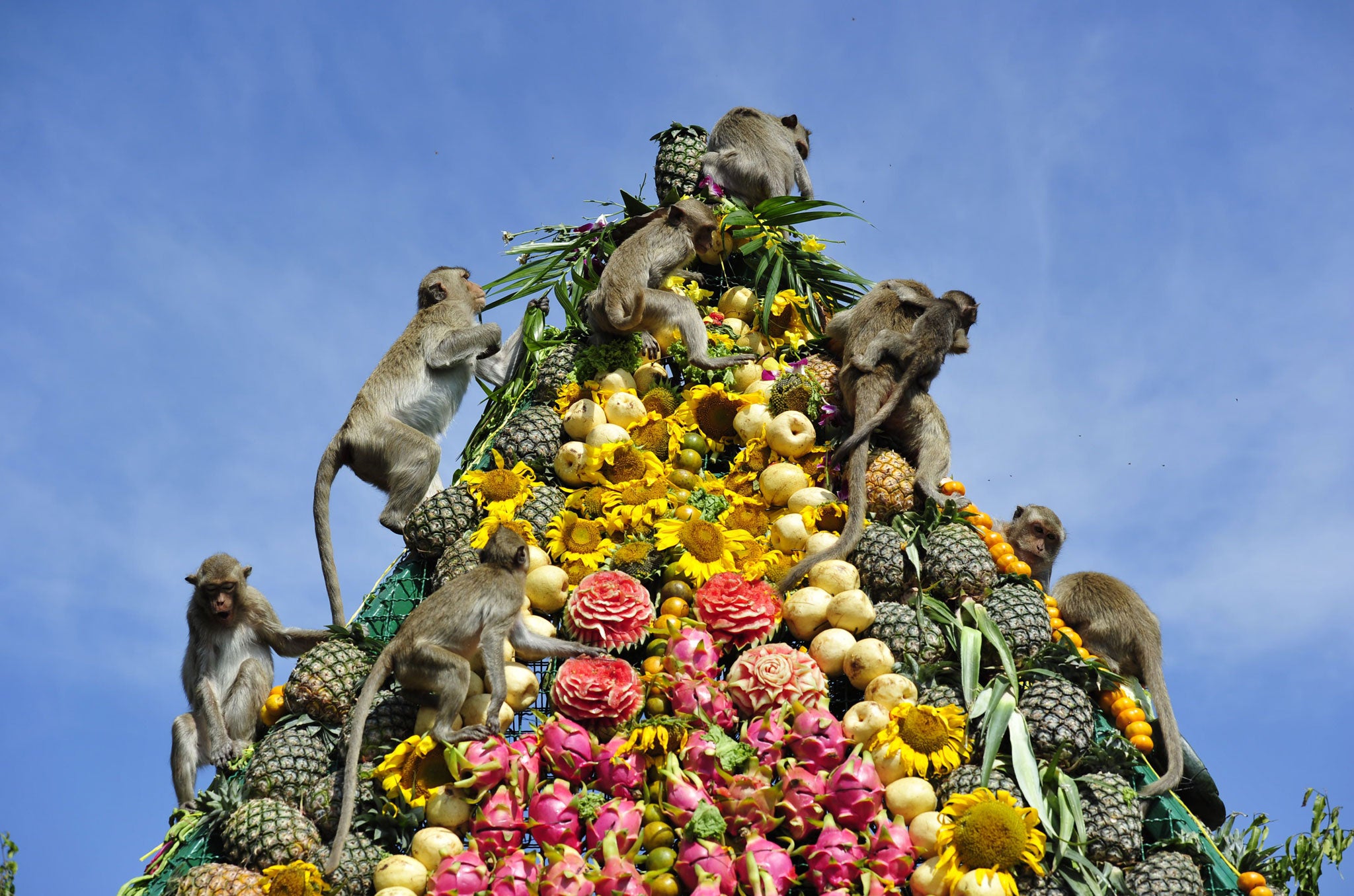Portfolio: Natthawat Wongrat photographs the annual feast of Lopburi's crab-eating macaques

Your support helps us to tell the story
From reproductive rights to climate change to Big Tech, The Independent is on the ground when the story is developing. Whether it's investigating the financials of Elon Musk's pro-Trump PAC or producing our latest documentary, 'The A Word', which shines a light on the American women fighting for reproductive rights, we know how important it is to parse out the facts from the messaging.
At such a critical moment in US history, we need reporters on the ground. Your donation allows us to keep sending journalists to speak to both sides of the story.
The Independent is trusted by Americans across the entire political spectrum. And unlike many other quality news outlets, we choose not to lock Americans out of our reporting and analysis with paywalls. We believe quality journalism should be available to everyone, paid for by those who can afford it.
Your support makes all the difference.The province of Lopburi, 150km north-east of Bangkok, is famous for the hundreds of crab-eating macaques that overrun its Old Town – including the 13th-century temple of Phra Prang Sam Yot.
The former Hindu-shrine- turned-Buddhist-sanctuary-turned-Khmer-ruins is Lopburi's best-known landmark, and each year hosts a grand banquet on the last Sunday of November.
Long red tablecloths are laid out; invitations are issued – or, at least, attached to cashew nuts; and chefs prepare a feast that includes sticky rice, fruit salads and an egg-yolk dessert known as thong-yod (or golden tear-drops). The diners are then invited to tear into the grub – and tear they do, in between squirting drinks at each other and dancing on the table – because these guests are those self-same macaques, which locals believe will bring good luck if they treat them with kindness.
And they do bring luck of a sort: the little scamps are generally recognised to be the region's biggest draw for tourists – even if they are also known for stealing from their backpacks and defecating on them from their overhead perches.
The vegetarian blowout might sound a strange gift to creatures whose very moniker suggests they would be into something more crustacean, but crab-eating macaques typically do not eat crabs at all. Fruit and seeds make up anything from 60 to 90 per cent of their diet, and while they do prey on bird chicks, lizards, frogs and fish, they also moderate this fleshy intake with leaves, flowers and bark.
Join our commenting forum
Join thought-provoking conversations, follow other Independent readers and see their replies
Comments